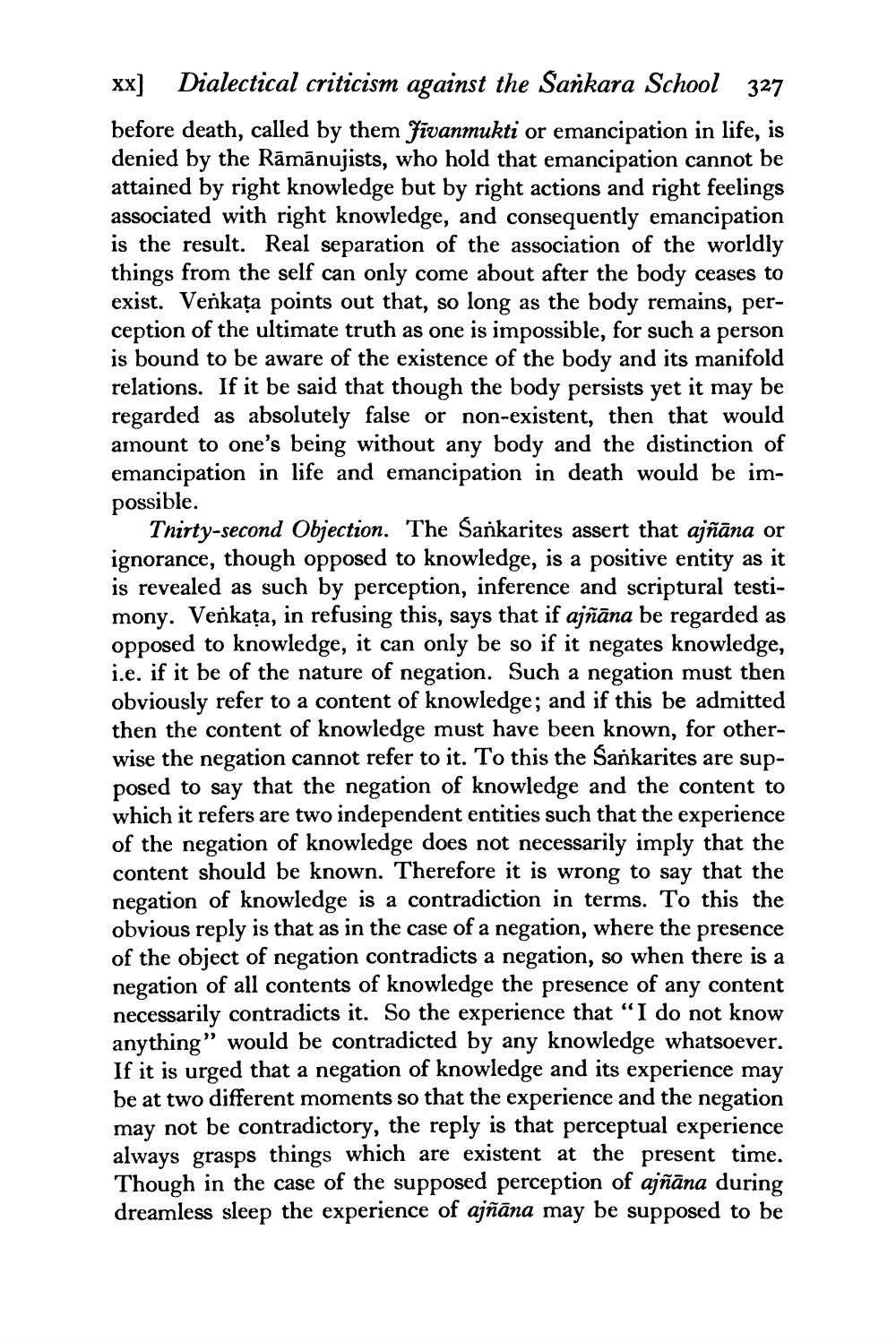________________
xx] Dialectical criticism against the Sankara School 327 before death, called by them Jivanmukti or emancipation in life, is denied by the Rāmānujists, who hold that emancipation cannot be attained by right knowledge but by right actions and right feelings associated with right knowledge, and consequently emancipation is the result. Real separation of the association of the worldly things from the self can only come about after the body ceases to exist. Verkata points out that, so long as the body remains, perception of the ultimate truth as one is impossible, for such a person is bound to be aware of the existence of the body and its manifold relations. If it be said that though the body persists yet it may be regarded as absolutely false or non-existent, then that would amount to one's being without any body and the distinction of emancipation in life and emancipation in death would be impossible.
Thirty-second Objection. The Sankarites assert that ajñāna or ignorance, though opposed to knowledge, is a positive entity as it is revealed as such by perception, inference and scriptural testimony. Venkata, in refusing this, says that if ajñāna be regarded as opposed to knowledge, it can only be so if it negates knowledge, i.e. if it be of the nature of negation. Such a negation must then obviously refer to a content of knowledge; and if this be admitted then the content of knowledge must have been known, for otherwise the negation cannot refer to it. To this the Sankarites are supposed to say that the negation of knowledge and the content to which it refers are two independent entities such that the experience of the negation of knowledge does not necessarily imply that the content should be known. Therefore it is wrong to say that the negation of knowledge is a contradiction in terms. To this the obvious reply is that as in the case of a negation, where the presence of the object of negation contradicts a negation, so when there is a negation of all contents of knowledge the presence of any content necessarily contradicts it. So the experience that "I do not know anything” would be contradicted by any knowledge whatsoever. If it is urged that a negation of knowledge and its experience may be at two different moments so that the experience and the negation may not be contradictory, the reply is that perceptual experience always grasps things which are existent at the present time. Though in the case of the supposed perception of ajñāna during dreamless sleep the experience of ajñāna may be supposed to be




